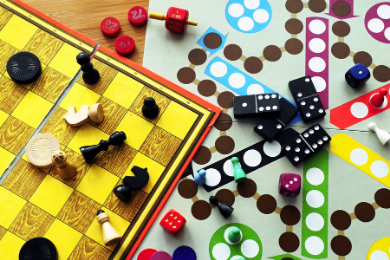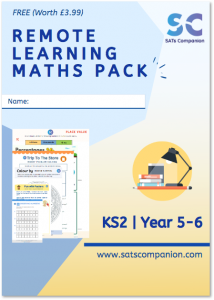
Noticed that your child is struggling with remote learning? Want to know how to brighten things up?
We know it’s been an uncertain year, and inconsistency makes it even harder to stay motivated. Don’t worry though, we’ve got you covered with these four fun remote learning tips to make online learning enjoyable & engaging.
Help them create their own ‘Learning Zone’
Turn where they’re learning, whether it’s the bedroom or the kitchen table, into their own personal ‘Learning Zone’. Establishing a set place to learn helps your child go into study mode, improving focus & motivation. For more fun learning, encourage them to customise it. Getting pupils into a creative mindset & increases brain engagement, helping them look forward to lessons. Using anything from LEGO building blocks, educational wall decals to playdough shapes is perfect, just make it colourful. Bright colours have been found to help stimulate memory, leading to better learning performance.

Play educational games & challenges
Finding new ways to learn helps your child to maintain a learning mindset throughout the day, so why not turn it into a game? Educational games help children learn in and out of the digital classroom, improving long-term memory retention. Digital games help fill screen-time practically, although do be mindful of how much time is spent online. Printable activities like a rhyming treasure hunt are engaging for offline stimulation. Also, for siblings learning at home, working together can be helpful. These could include a short story challenge, completing a word search together or seeing who can make the best times table poster. Want to get other parents & kids involved? Create your own hashtag, share online & wait to go viral. Check out lots of fun games and more at BBC Bitesize, perfect for KS1 & KS2, and get playing.

Include movement breaks in their routine
For younger children, maintaining a healthy screen time routine is crucial. Schedule offline breaks throughout the day and get them up & moving. Staying active helps with fitness, and regularly scheduled movement breaks help to regulate pupils, improving focus & information retention. Also, planned breaks help form a consistent & balanced routine for your child. Movement breaks should be around five minutes, done in a safe space & of course fun. Anything from child-friendly yoga, dance parties or jumping jacks is perfect for a quick refresh. Just don’t forget about the music!

Pursue a ‘learning adventure’.
Instead of just setting learning objectives, let your child choose their own learning adventure. Allow them to pick & choose what they want to learn about to create a brand new interactive learning experience. For structure, set a simple goal to work towards (E.g. learn five facts about space). Your child can make their own fact cards, educational posters & imagery, personalising their learning. This encourages independent work skills, logical understanding, and building up motivation.

We hope these tips help to brighten up your child’s day & they have fun remote learning. To help you get started, our Maths Home Learning Pack is fun & free to download.

For even more joy make sure you visit our Resources section. Interactive revision materials available, including educational card games & our popular SPaG placemat.
Happy learning everyone!


